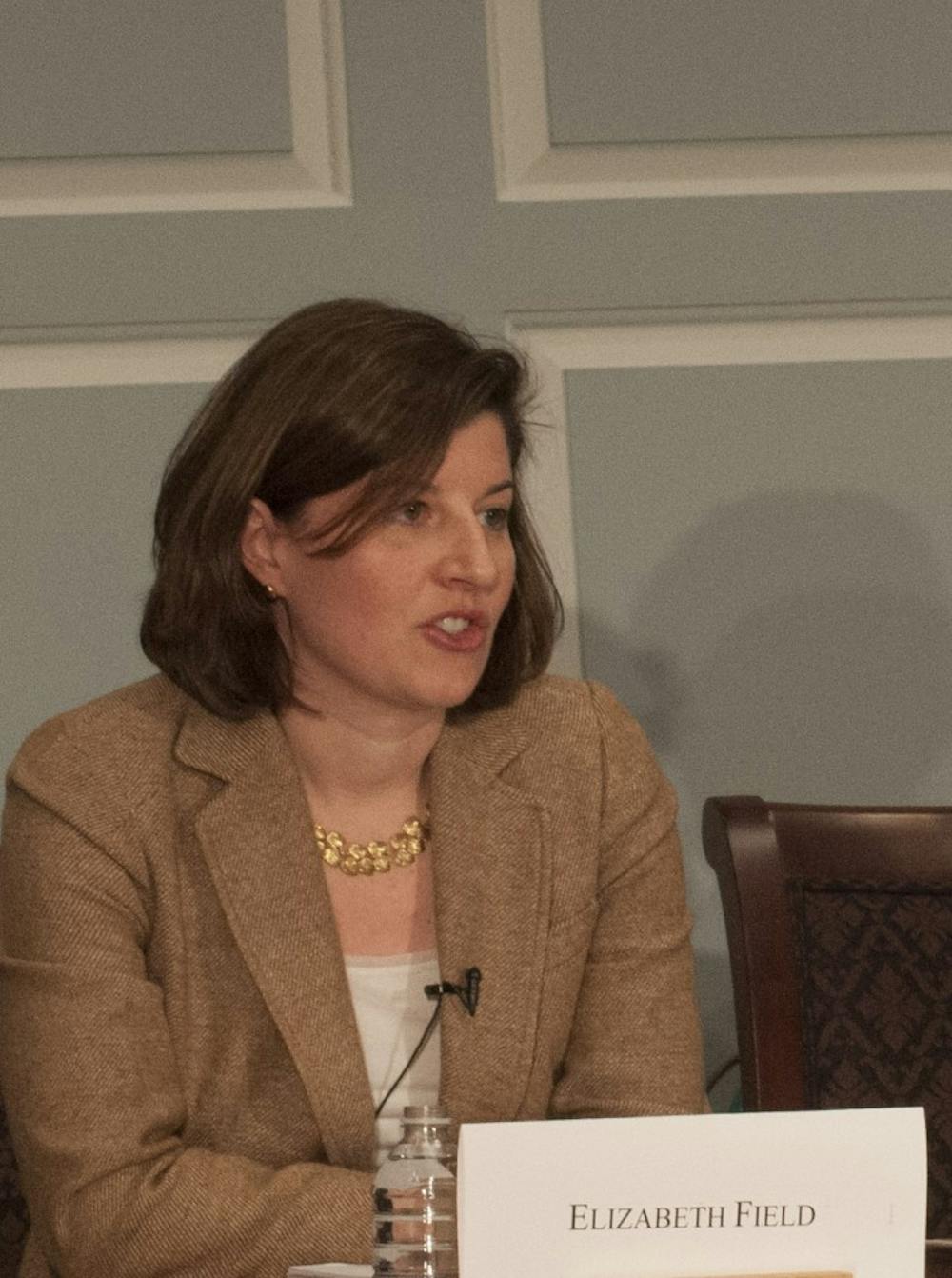The Miller Center hosted its 2013 installment of the William C. Battle Symposium on American Diplomacy Monday afternoon, with two panels discussing lessons the United States learned from interventions in Iraq and Afghanistan.
Both panels were moderated by visiting Miller Center Prof. Ryan Crocker who has served as U.S. ambassador to both Afghanistan and Iraq, as well as Pakistan, Syria, Kuwait and Lebanon.
The panelists discussed the difficulties of creating centralized government within a region of many conflicting factions, and noted that in terms of nation-building, Iraq is far ahead of Afghanistan.
This distinction is evidenced by Iraq’s far higher GDP, life expectancy — particularly among women — and literacy rates, said panelist Elizabeth Field, assistant inspector general for audits and inspections at the Special Inspector General for Afghanistan Reconstruction.
“Any challenges faced by the U.S. in Iraq pale in comparison to the challenges faced in Afghanistan,” Field said.
Panel member Hilda Arellano, senior development advisor at the State Department Foreign Service Institute in Washington, D.C. reinforced this idea. “Iraq really has sophisticated, well-run institutions to work with,” Arellano said. “We really need to turn a page on nation-building in Afghanistan to a very different chapter. To say that Iraq is a different experience than Afghanistan is really an understatement.”
Field said rebuilding efforts in Afghanistan are marred by inadequate planning, poor quality assurance, and questionable sustainability. “Time and time again we find projects that have been delayed, mishandled, or simply neglected,” she said.
Field also critiqued the lack of transparency in government aid to the struggling nation. She urged government officials to be open and honest with their constituents.
“The American people will not like what they hear, but they will have a better understanding of the money we have spent on reconstruction efforts and why we spent that money,” she said.
On the other hand, panel member Robin Lynn Raphel, diplomat and coordinator for non-military assistance to Pakistan, noted the progress made in Afghanistan throughout the past decade.
“It’s undergone a remarkable transformation in many ways — whether it’s economic growth, the number of children in schools, literacy rates, women’s civil participation, civil society, media, access to cell phones — all these kinds of things have made [Afghanistan] a very different place” Raphel said. “I’m not trying to paint an overly rosy picture, but among the gloom and doom I’d like to point these things out.”
Crocker concluded the panel by reflecting on his experience in Afghanistan, and said despite “the enormity of the challenge,” it is in the best interest of United States’ national security to keep forces in the Middle East for the time being.
“Americans are tired of war, and they’re tired of the expense,” he said. “I get that—you get tired pretty quick in that environment. But we got tired of Afghanistan once before, and packed up and went home. That decision had cataclysmic consequences for Afghanistan and for the United States.”







